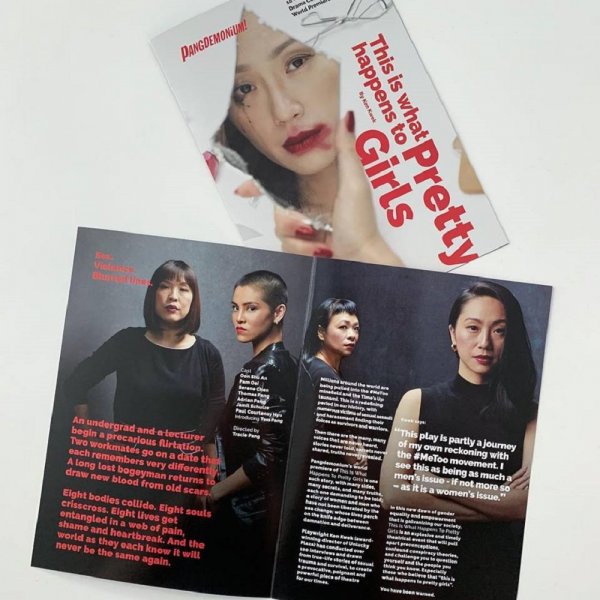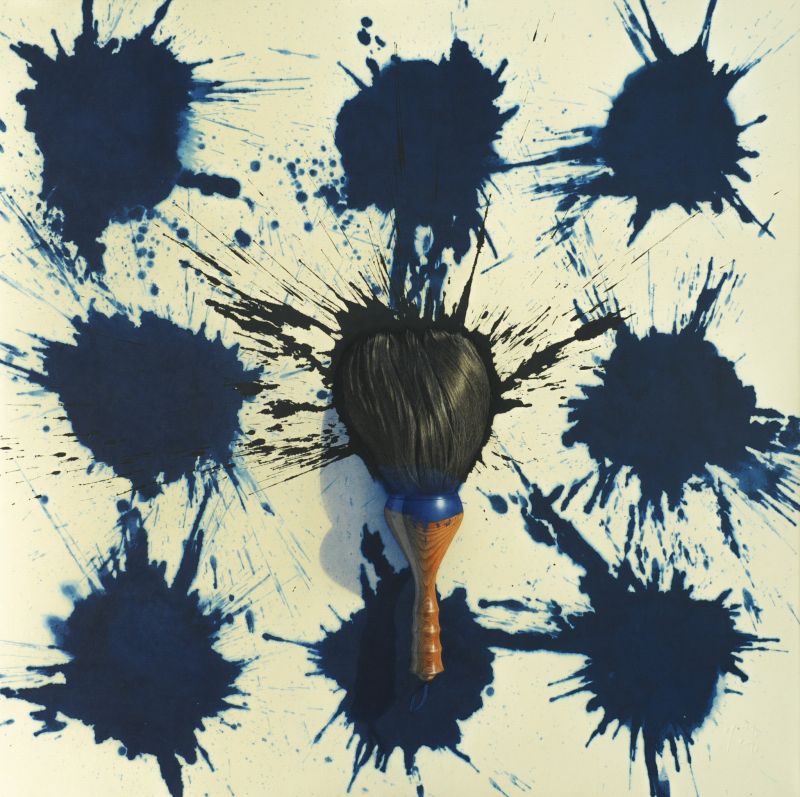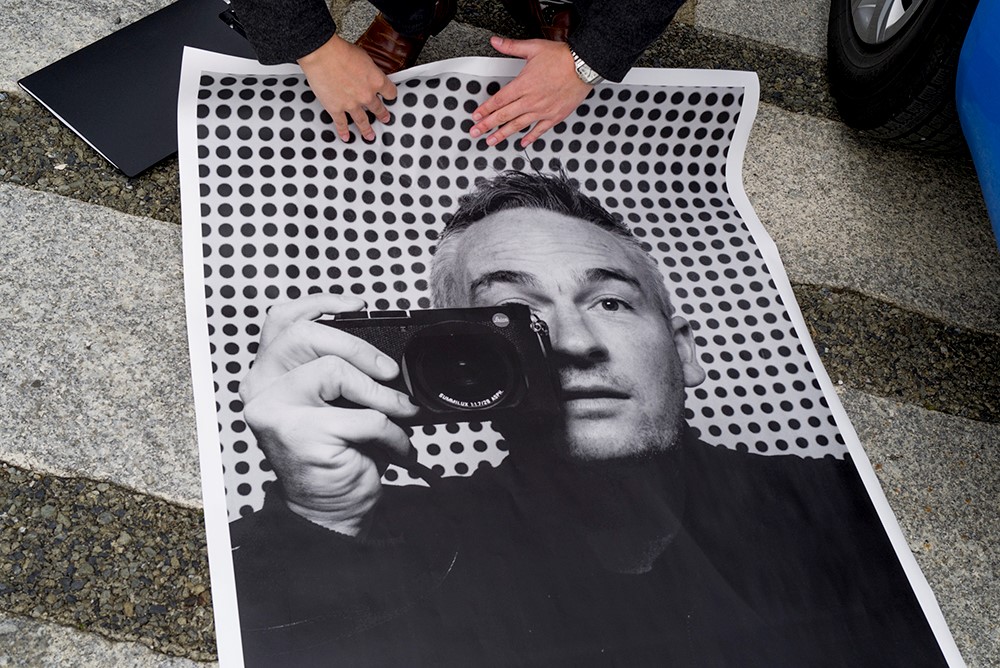It’s been a minute since the last original Pangdemonium script (Dragonflies in 2018), but after a successful run with the recent Late Company, the local theatre troupe is back with another world premiere. And it looks promising.
From the title alone, This Is what Happens To Pretty Girls demands attention. Written by Singaporean playwright Ken Kwek, the play inspired by the #MeToo movement finds its weight in real accounts from over 100 women and men Kwek conducted interviews with. It plays out in a series of short stories: An undergrad and a lecturer begin a precarious flirtation; two workmates go on a date that each remembers differently. Eight separate lives cross and become forever entangled in a web of pain—performed by an ensemble cast starring the likes of Oon Shu An, Serene Chen, Thomas Pang, Adrian Pang, and Kwek’s own wife and actress Pam Oei.

Photo credit: Oon Shu An Facebook
He was last spotted authoring a children’s book on phubbing, a term for snubbing your companions in favour of using your phone; a heavy full-length theatre work on sexual assault definitely counts as a complete 180. But Kwek is unfazed, and confident he can deliver a work that is as meaningful as it is truthful.
Before the show opens on May 10, we had a chat with Kwek to pick his brain on the touchy topic.
Walk us through how you came to ideating the script for Pretty Girls. Were you specifically commissioned by Pangdemonium to broach the topic?
KK: “Commission” doesn’t quite convey the organic and consultative way in which the Pangs and I develop new material. Adrian and I were actually in the process of creating a different story when the first of Harvey Weinstein’s accusers went public in late 2017. Though the #MeToo movement first gained traction in Hollywood and the United States, it soon became a worldwide phenomenon, signalling just how endemic and widespread the problem of sexual assault and harassment is. It was too big an issue to ignore, so we changed course and I got cracking on this new piece.
What was your interview process like?
I wanted to attack things journalistically, to hear the real-life stories of survivors and use their testimonies to build the characters for the play. I spent a year gathering stories from friends, acquaintances and complete strangers. It was a difficult thing to talk about and I’ll always be grateful to interviewees for sharing so candidly. Throughout the process the Pangs and I exchanged articles and had long conversations about the issues at hand, the blind spots to look out for; the risks latent in trying to depict sexual crimes onstage.
What stood out from their stories for you?
#MeToo covers a wide range of issues—too many to deal with in a single play. In the end, though I heard stories of egregious abuse—child molest, violent rape, incest—I knew this play was about something more banal: the threat that women feel everyday going out into the world in their bodies, and the mistakes men make in expressing their attraction to those bodies.
One thing that stood out for me was how many women felt compelled to maintain a friendship with the men who harassed or assaulted them. It seems counterintuitive at first, but when you think about it, it makes utter sense as a coping mechanism, since the men were often friends, workmates or even relatives of the women. In cases where the harassment escalated, that coping method sometimes worked against the women in legal arguments: Why would they be so nice to the men who had harassed or assaulted them? Yet as an emotional response, it’s completely understandable and all too human.
What do people misunderstand about sexual abuse victims and their stories?
Often survivors are attacked as having made their accusations up, or been inconsistent in their accounts, or been too slow in reporting their cases. A recent Ipsos survey showed that four in ten Singaporeans think false accusations of sexual harassment are a bigger problem than unreported acts. To me that’s a disturbing finding. Survivors may have difficulty recounting their experiences with clarity because they’re still dealing with shock and trauma. They may wait longer to report an assault because of the fear of not being believed—a fear that seems justified, given the Ipsos findings. An inability to clearly recount one’s experience may lead to a fraught situation legally, but it is a psychological reality that more people should try to understand.
The title seems clearly made for shock value. Why was that important for this production?
The title is a quote from one of the interviews I conducted, and articulates a common line of prejudiced thinking. It’s meant to be provocative title, but I wouldn’t say it’s creating shock value for the mere sake of it.
A project like this could easily be written off as trying to hop on the #MeToo media bandwagon. What steps did you take to ensure a balance between authenticity and the natural sensationalism of the topic/medium of performance?
I don’t worry myself about how critics or commentators might characterise my intentions for writing the play. I simply write the most truthful play that I can, and hope the audience is both entertained and provoked by the work.
This Is what Happens To Pretty Girls runs from May 10-26 at Drama Centre Theatre, 100 Victoria Street. Tickets are available from $25 here.





